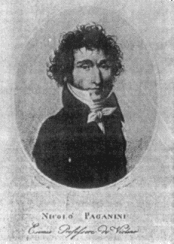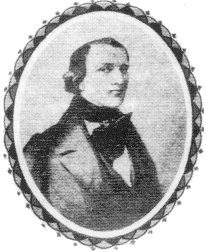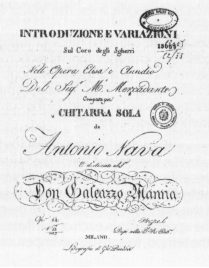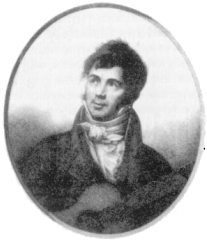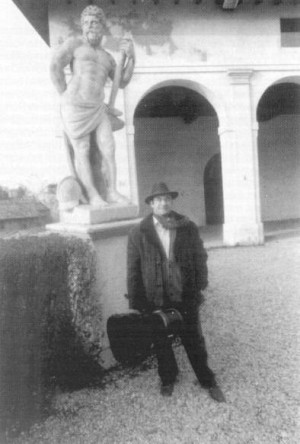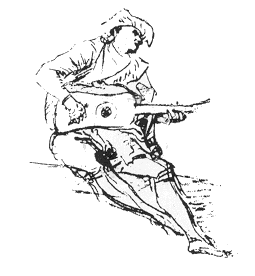|
Giovanni Grano |
|||
|
The Romantic Music for Guitar |
|||
|
Discography
|
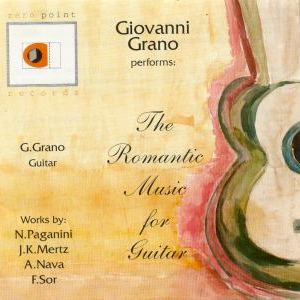 |
||
|
Fernando
Sor Antonio
M. Nava [Rev. G.Grano] Johann
Kaspar Mertz Niccolò Paganini [Rev.
R.Chiesa] |
[5'33] [5'26]
[10'43]
[5'00]
|
||
|
My deep wish is
to dedicate this recording to my Master and |
The Romantic GuitarThe first
literature written for the guitar appeared after 1800 and quickly gained
momentum during the first part of the 19th century, a time commonly regarded as
the 'classical period'. It lost something of this great popularity in the
following years, which fall within the Romantic age. However, a number of guitar
works dating from the first period show different characteristic for which they
deserve to be placed, within a different aesthetic movement, which already shows
the signs heralding new expressive forms. Such is the case for the works
selected for this recording, which, together with others dating later, fully
justify a program labelled "The Romantic Guitar". The guitarist and composer Antonio Nava is nowadays mostly remembered for having inaugurated in 1808 the catalogue of the publishers Ricordi, with a descriptive piece called Le stagioni dell'anno (The Seasons). His musical production however remained in the shade, although it recently started to evoke some interest. This recording presents the lntroduzione su tema di Mercadante op.62, a typical sample of bravura piece as they were very frequent in the beginning of the eighteenth century. The theme from Mercadante's opera Elisa e Claudio is skilfully ornarnented by the upper voice in each of the five variations and gets even more vitality in the last one thanks to a change in the tempo, to end with an impetuous finale. An intense romantic atmosphere permeate all the compositions of the Hungarian Johann Kaspar Mertz, who knew to end of the guitar with a musical language that was perfect consonant with the requirements of his epoch. In its outward appearance his instrumental writing hardly differs from the one of the classical authors who were his immediate predecessors; yet the musical content takes a leap towards unexplored horizons. Without compromising the coherence of his personality, Mertz explores the same territory as Mendelssohn, Schubert, and even Liszt, when he abandons himself to the remembrance of his motherland. As early as in the Three Nocturnes op.4 we recognize the elements that are to become substantial part of his future works: touching melodics, generally displayed in the upper range and sustained by frequently broken chords, and modulations aimed at highlighting the sudden changes of key. Among his short works, the masterpiece is however op. 13 entitied Bardenklänge, a collection in which the composer's artistic maturity attains unsurpassed heights. One will be easily convinced of this by listening to the charming cantabile, composed with almost pianistic taste, which sustains Liebeslied, and to frequent turmoil of Fingals Höhle. Le gondolier, from the Trois morceaux op.65, is an other significant example of that soft melancholy which is able to evoke the atmosphere we experience in some of Mendelssohn's 'Songs without Words'. Paganini composed his Grand Sonata "for solo guitar with violin accompaniment" when he was barely more than twenty years old, at a time when he also may have planned to perform also as a guitar virtuoso. In the same days he in fact wrote the Sonata concertata for guitar and violin, where the two instruments are treated as equal partners. We know that Paganini never carried out this project, although his interest in the guitar never lessened throughout his life, as we can see from the numerous solo and chamber music pieces he dedicated to the instrument until his last years of activity. Although the Grand Sonata provides for the participation of the violin, this support is so scant that a rendering of the sonata with guitar alone is more than justified. Divided into three movements, the composition opens with an "Allegro risoluto" of large scale proportions, where the second theme of the sonata form prevails, and a large number of melodic ideas are alternated with passages of virtuosistic nature. The second movement, "Romanza", is a typical Cantabile and discloses Paganini's lyric and melancholic nature, whereas the third movement, "Andantino variato", consists in a sequence of sparkling variations. It would however be wrong to imagine that the Grand Sonata, being a work of the composer's young days, showed any scholastic features. Indeed, on the contrary, here we are in presence of one of the most beautiful and perfect great guitar works of the eighteenth century, a bright sample of creative genius that was to continue to shine throughout the masterpieces that are familiar to all of us. Ruggero Chiesa |
|
N.
Paganini |
J.K.
Mertz |
|
A.
Nava |
F
Sor |
|
Giovanni Grano |
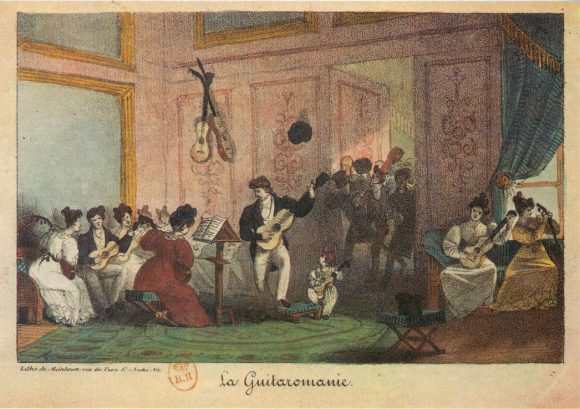
La Guitaromanie |
|
Recorded at Zero Point Recording Studio (Kramsach/Austria)
in June 1992 and February 1993 Engineered and produced by: R. Romagna J.K.Mertz's portrait by the courtesy of Astrid Stempnik (Vienna/Austria) Contact adress: zero point records Digitaltape and hard disk
recorder used during session recording, mixing, editing and mastering. Manufactured by Sony DADC/Austria |
|
Printed in Austria 1993. Copyright 1993 by zeropoint records, Zeindl & Romagna GnbR/Austria. |
